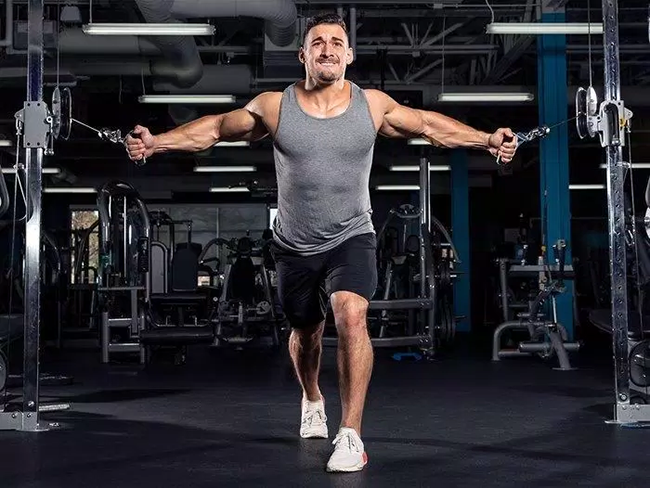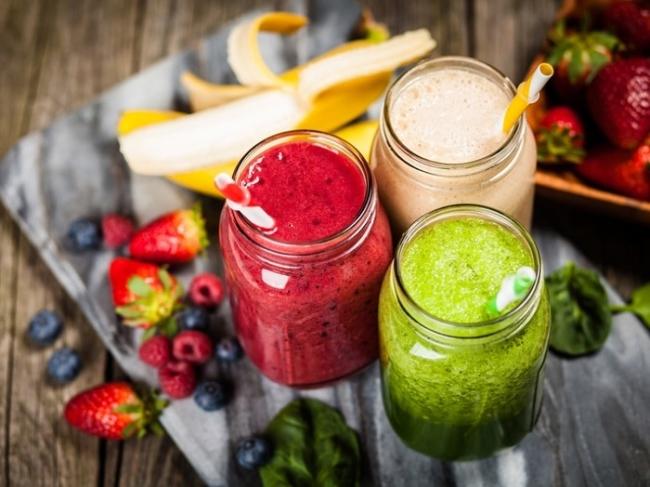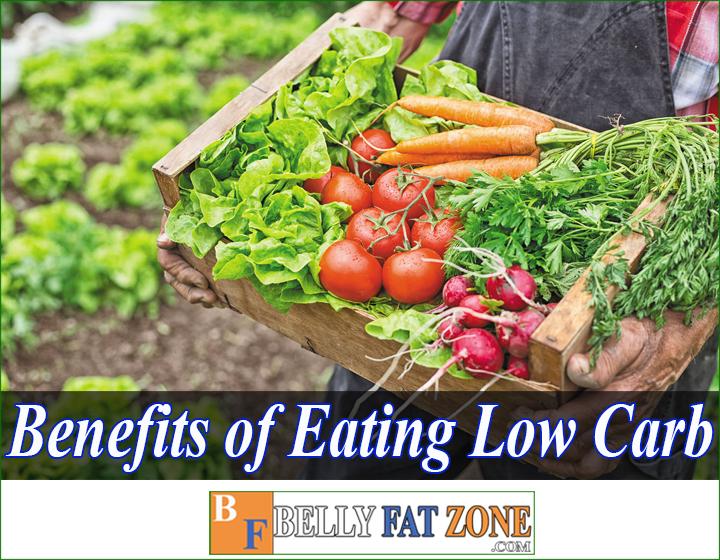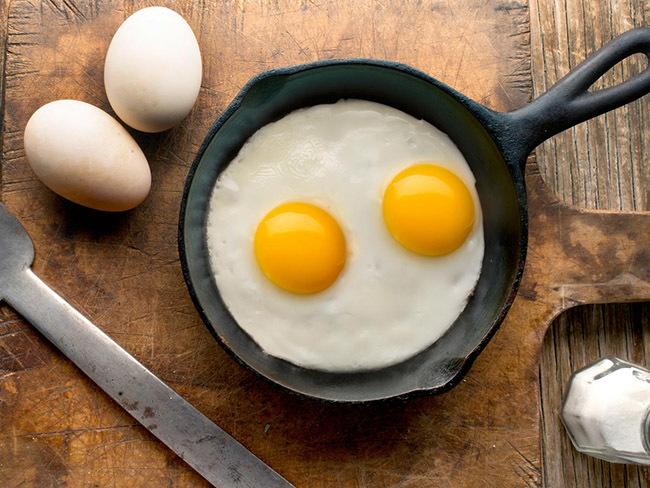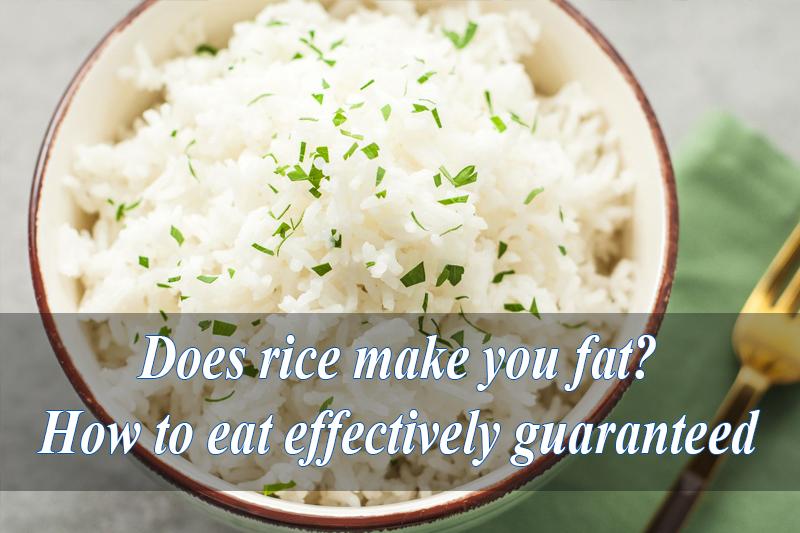Firstly, if you are a longtime bodybuilder and regularly pay attention to your daily nutritional calculations, you can skip this article.
This article is intended for those who are just starting on the road to exercise and mastering their body but do not know how to calculate and the most basic principles in bodybuilding:
- Principles of gaining weight, losing weight
- Principles of muscle gain
- The principle of dividing the nutrition regimen and the basic meals
- …
This article's content will solve all of the above problems and give you a very overview of your diet and details on how you can calculate how to train your body to get the best results.
In this article, Bellyfatzone will show you how to plan a reasonable diet and achieve clear effects in the shortest time.
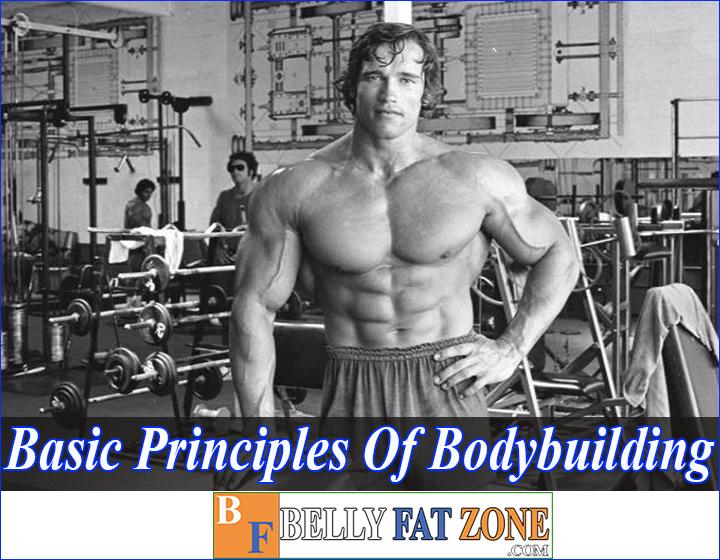
A quick summary of this article on a diet for bodybuilders
- You will learn the principles of eating while exercising.
- You will know the principles of weight gain, weight loss based on what.
- You will know how to calculate calories to eat per day to reach your goals.
- You will be sharing sample menus for 1 week for each goal.
Ok, since this post is quite long, I recommend you share this article about your wall so you can reread it next time.
Part 1: Principles of the bodybuilder's diet
1. You need to get enough Protein
Protein is essential in life; if you have watched reality survival programs like Man vs. Wild, you may have heard that you will very quickly die in the forest if you do not have protein to eat.
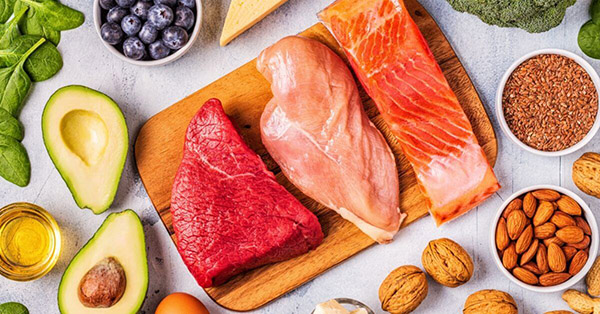
Bear Grylls will find every source of the highest protein to eat without wasting a bit.
And similarly, during our bodybuilding process, you must remember to eat enough protein if you want to achieve any one goal.
With a normal person, the lowest amount of protein per day is 0.8g / kg body weight.
As for bodybuilders, depending on each person's intensity, the amount of protein will vary from 1.5 to 3g protein/kg body weight.
How do I know exactly how many grams of protein I should eat a day? This simply means that you will need to experiment.
For example, you eat 2g of protein and exercise 6 times/week. If you find that your muscles are well developed, that is the amount of protein you need.
On the contrary, if it grows slowly (of course, eliminating the cause of the wrong training, the wrong technique, or the incorrect training schedule … so), you need to add a little more protein until you notice your muscles. It started to grow well.
Protein-rich food sources you can find are
- Kinds of meat
- Egg
- Milk
- Broccoli
- Oat
- …….
Read more: 100 Weight Loss Tips at Home.
2. You need to load Carb
Besides Protein, Carb is the main source of energy for the body when exercising. Whether you lose weight, gain weight or gain muscle, carbohydrates must always be on your diet when exercising.
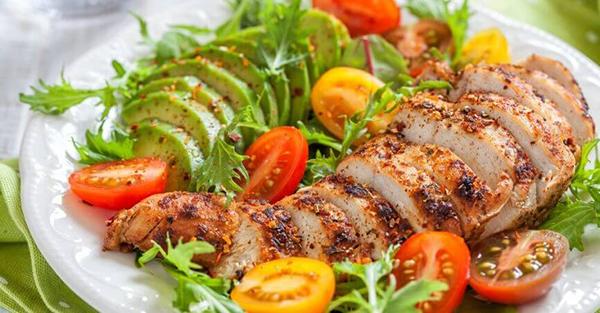
If you gain muscle or gain weight, you don't wonder if you usually lose carbs, but people who often lose weight will be advised not to eat carbs and here again, tells you to eat carbs that will make you have a bit of ice fret.
In fact, the cause of weight gain is not in Carb, but all of what you eat during the day cause it.
When it comes to weight loss training, if you don't eat carbs, you won't have the energy to exercise, and when your body doesn't have enough energy, you won't work out effectively.
Ultimately leading to a poor calorie deficit, and you will not be able to lose weight fast.
So 1 day, we will need to load how many grams of Carb here? You simply need to access this Carb calculator and enter the necessary numbers, and you will have immediate results.
Good sources of Carb you can use are
- Rice
- Brown rice
- Black bread
- Cereals
- Oat
- Sweet potato
- Fruit
- ….
3. Don't forget about fat
As mentioned above, fat is not the reason you get fat but is the total calories you eat from the outside.
If you take the time to study carefully, you will know that fat helps you lose weight more effectively than it makes you fat.
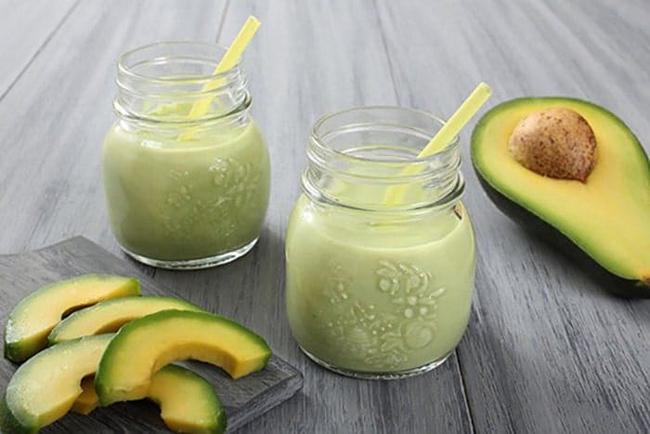
Fat also has many effects on building muscle and helps you absorb vitamins and minerals optimally.
However, you need to know what type of fat to use.
Fats like Omega 3 are incredibly healthy, but industrial fats (found in many packaged, ready-to-eat foods) are the exact opposite, causing you to experience various stress-related illnesses. Fat.
So how many grams of fat do you need a day? We also use the Fat calculator to know the exact number we need ha.
There are several good sources of high-fat foods you can use
- Olive oil
- Omega 3
- Rapeseed oil
- Chia seeds
- Almond
- Peanut butter
- Salmon
- ….
4. Get enough vitamins
The next part of the diet for bodybuilders is vitamins; if you eat all the three above substances, the amount of vitamins is deficient. Eating all 3 substances will become ineffective.
You can imagine it like this. Protein, Carb, and Fat are the building blocks of your muscle. Vitamins are turtle wagons carrying those bricks to the builders.
If the number of turtle cars is small, the mason will receive fewer bricks, and the muscle-building job will become slower.
The vitamins and minerals also support each other. For example, you have often heard that you need calcium supplements to keep bones strong.
And you just load too much calcium but do not load Vitamin D, that calcium cannot be absorbed but also goes back to harm the body, even making your bones faster to age (osteoporosis).
You can re-read the article on Essential Vitamins for Bodybuilders to see and find foods rich in that vitamin source to consume.
5. Should eat into many small meals
Not long ago, Bellyfatzone wrote an article about the rules of eating and increasing muscle in bodybuilders, which talked a long time about how to eat and how to combine substances to best gain muscle.
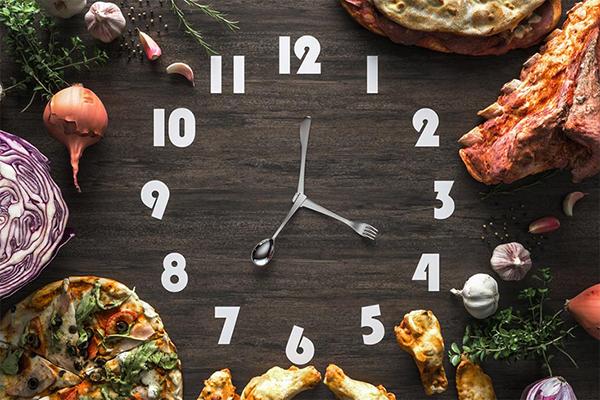
The article analyzed why you should eat many small meals instead of 3 large meals a day.
Basically, you eat many small meals that will help the absorption of nutrients, and protein synthesis will be more effective in the long term.
Your digestive system is also working better. So, if possible, divide your 3 main meals into 5-6 small meals a day.
6. Do not let the body become dehydrated
A serious mistake in the bodybuilder diet that many people make is to drink very little water, especially fat.
Fat people often think that drinking water will cause them to accumulate water and make them look fatter.
But you're wrong; to release fat, your body needs water to handle this problem. Therefore, if you don't drink water, what will it take to treat the fat for you?
Water occupies the majority of our body; all biological activities in the body require water.
Lack of water, the metabolic system will slow down, skin becomes pimples, organs have reduced function, the brain becomes less flexible, muscles are prone to cramps during and after exercise … a lot the implications of dehydration are caused to your body that you cannot even end up on.
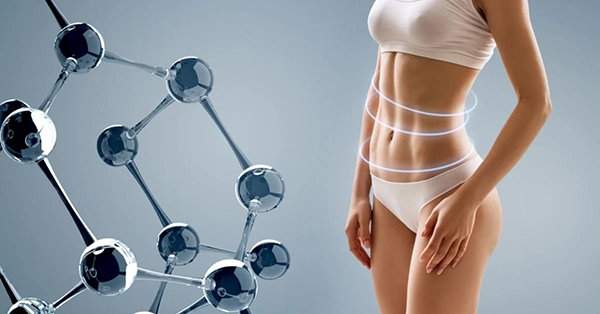
So how many liters of water a day should I drink?
This is similar to calculating Carb and Fat; you will have 2 formulas to estimate the amount of water you need to drink daily as follows:
- Formula 1: Based on body weight. You will drink 30-40ml / kg of body weight. So if you are 50kg, you can drink 2000ml (2 liters) of water per day.
- Job # 2: Based on Protein Calories: We need 7ml of water to process for each protein-calorie. So if you use 100g of protein a day, you will have 400 calories to process. According to the above formula, we have 400 * 7 = 2800 ml (equivalent to 2.8 liters).
Actually, these formulas are not completely true for everyone (because it depends on the person's body, eating, and exercising), the simpler way than doing this kind of calculation is when. You feel thirsty, and you drink water.
If the thirst stops, stop. When going to practice, drink enough water to make you feel refreshed while exercising. That is fine
Another little tip to know if you are drinking enough water is to look at your urine color.
- If it's a bit yellow: The amount of water you drink is normal.
- If it's dark yellow: You're dehydrated.
- If the water is clear: You are drinking the necessary amount of water.
7. Have a snack before bed
This diet for bodybuilders is likely to make those who are losing weight … nervous.
However, when you eat before going to bed, it does not make you fat, as long as you do not eat extra calories a day to eat.
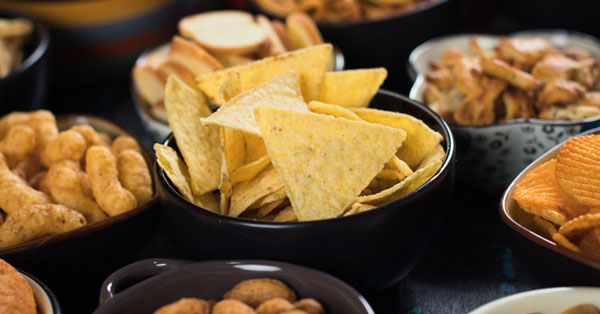
Snacking before bed has many benefits, especially for gym-goers, because it helps you sleep better.
If that snack contains protein, then great because it will help your muscles have the amount of protein needed to use for repair and muscle building while you sleep.
At this point, you can eat almonds, walnuts, chia seeds, or better yet, mix 1/2 teaspoon of Whey with 1/2 teaspoon of Casein for best use.
Part 2: Principles of increasing and losing weight in bodybuilding
In part 2 of this article, diet for bodybuilders lose weight, gain weight, gain muscle. I will help you understand the principles of weight gain and loss.
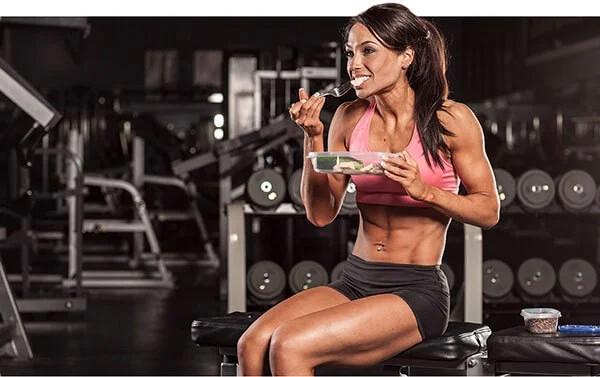
If you apply these principles correctly, your goal will be much more effective and easier than before.
- To gain weight: Weight gain = Calories in> Calories out.
- To lose weight: Weight loss = Calories In <Calories out.
This is the most basic principle for weight gain or weight loss (of course, it will have some other side factors, but usually due to disease or genetics, so I do not mention them in this article).
- Calories IN: That means all the foods that contain calories that you eat every day?
- Calories OUT: Which activities do the body uses for energy and burn calories?
How do I know how many calories a food intake contains?
To know the number of calories in foods, there is only one way to sit and calculate—the calories in most food I have provided in these 3 links 1, 2, 3. You can click to see.
Besides, if the food you are looking for is not available, you can use Google to quickly lookup the keyword food_type + Nutrition (Example: Banana Nutrition).
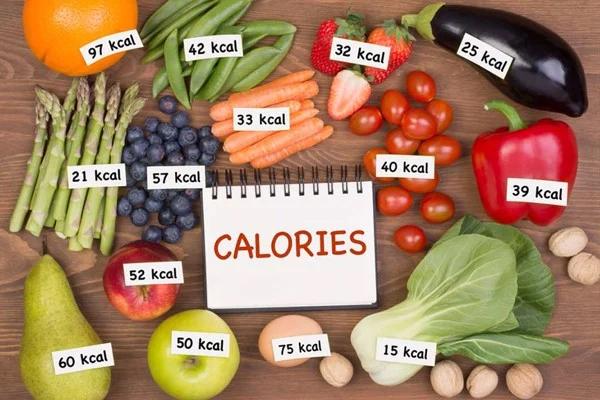
It will give you details about Calories, Protein, Carb, Fat, Vitamins, and that type of food.
However, those numbers are for reference only because depending on the type of food, quality, and variety, the number of calories will vary. We know to approximate it.
How do I know how much Calories OUT is?
Our calories will be consumed through 2 forms: exercise and biological activity in the body.
Most of your calories are used for biological activities in the body (thinking, breathing, heart beating, organs … .. all activities using energy).
And the amount of calories you burn through training is not as much.
To calculate calories consumed through activities in the body, you can use the BMR calculator, which will tell you how many calories you use.
Also, to calculate calories through exercise, you can visit this link. Enter the exercise name, your weight to calculate.
Similar to Calories In, the Calo Out calculation is also relative, not 100% accurate. We will only use the provided numbers for reference.
So which is the best option to determine Calories In and Calories Out?

You will need to have a notebook that records what you eat, what you exercise, the intensity of the exercise … in detail.
This record will tell you what you eat and practice that day. After 1 week and compare it with your weight.
If your goal is to lose weight and find that you lose weight after a week, that is the calorie you are looking for.
If not, increase the intensity of the exercise or reduce the amount of food follow up the same goes for weight gain.
Part 3: Macros calculator bodybuilding
In part 2 of this article on a diet for bodybuilders, you already know how to find calories, Carb, Protein, Fat in food, then in this section, I will guide you on how to apply the ratio Protein: Carb: Fat how to eat the most reasonable.
- Step 1: You will need to know your calories per day using the TDEE calculator (or based on the daily food tracking mentioned above to determine calories). Once you have the calories you need, then visit this Macro calculator now. Here, you will enter your calories in the Calories box.
- Step 2: If you are on a diet provided in the tool, you just need to select it. Conversely, if you are not on a diet and want to eat your own Macro ratios, just enter your Proportions? is to be. (Note the sum of the 3 cells must be 100).
- Step 3: Next, you will choose the number of meals you need to eat
- Step 4: Click calculate and view the result.
Once you have the results, just eat the number shown to you.
Although this approach works quickly, it takes you quite a bit of time to sit and calculate each dish's calories and beginners have no less trouble.
So a plan to track calories by recording in part 2 would be a better way for you. And in part 3, this is more advanced for those who really want to get the effect as quickly as possible.
Why is it necessary to calculate macros in the gym? What is a macro in the gym? Macro in the gym is the nutritional components in a dish, including the three most important ones: Protein (protein), Carb (starch), Fat (fat), often plus Fiber (fiber). These are the three main and most important ingredients that bodybuilders must pay attention to in their exercise diet. If you are new to the gym, many brothers and sisters, or individual gym trainers, will definitely advise you to learn how to calculate Macros in eating. So why is that necessary, and what is the benefit of it? The main cause is that the Macro Index will Note: each person has a separate training goal, so there will be different numbers. Currently, on social networking sites, many people share their Macro gym formula, many of you successfully reapply, and others do not. Simply because of your location and everyone is different. Step 1: Calculate BMR Step 2: Calculate TDEE Step 3: Determine a goal and calculate the right number of calories. Step 4: Instructions for calculating the Macro by hand (prepare paper and pen and the calculator, it's simple) Before you start, you need to remember 1. Calculate the amount of Fat (fat) you need in 1 day The amount of Fat you need to load into the body accounts for about 25% of TDEE. For example, your TDEE is 3200 Calories. So Fat = 0.25 * 3200 = 800 calories From 800 calories, I divide it by 9 (looking up, where 9 will be), the amount of Fat to eat per day: 800/9 = 89gram (1) 2. Calculate the amount of Protein (protein) you need in 1 day Before calculating, you must carefully read the article on how much protein a day you should consume. – 2.2 grams/kg of weight is quite standard For example, if you set a goal of 78kg, you infer, 78 * 2.2 = 171grams Protein/day (2) From 171 grams of Protein, I multiply it by 4 (look up, and will see where 4) will have the amount of protein to eat per day: 171 * 4 = 684 Calories 3. Calculate the number of carbs (starch) you need in 1 day With TDEE, the model is 3200 Calories => Calories of Carbs are: 3200 – (800 + 684) = 1716 Calories From 1716 Calories Carbs, I continue to divide by 4 (looking up, where 4 will be clear), the number of carbs to eat per day: 1716/4 = 429gram (3) Finally, so your Macro is a Protein: Carbs: The Fat a ratio of 171: 429: 89
How to calculate macros in bodybuilding?
Part 4: Diet for bodybuilders to lose weight, gain weight, gain muscle with a sample menu
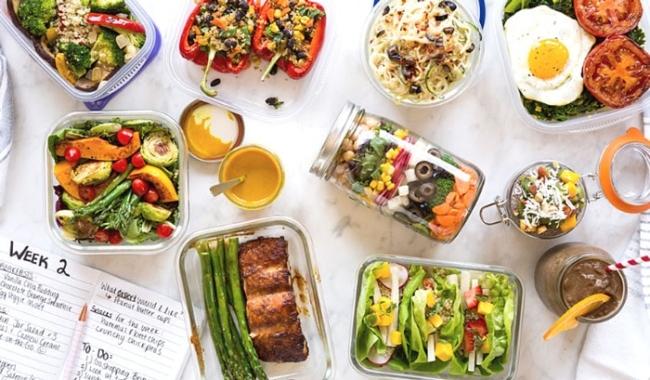
Note: The following diet is for reference only; eating may vary depending on the person and your economic conditions.
Diet for bodybuilders to lose weight
Day 1:
- Meal 1: 1 scoop of Whey Protein + 1 banana (Or 1 cup of oats with 2 egg whites)
- Meal 2: Cucumber salad with yogurt and a few seeds
- Meal 3: 100g chicken breast, 1/2 cup mushrooms, 2 cups spinach, 1/2 cup carrots
- Meal 4: 1 small apple, fewer almonds, 1 teaspoon Whey Protein
- Meal 5: 100g Salmon meat, 1/4 cup brown rice, 2 cups boiled vegetables.
- Meal 6: 1 cup of yogurt, a small handful of almonds, 1/3 cup strawberries
Day 2:
- Meal 1: 1 cup of yogurt, 1 cup of cheese, 1 cup of grapes
- Meal 2: 1 cup of chocolate milk
- Meal 3: 1/2 cup oats, 1 cup blueberries, 1 teaspoon of flaxseed. 1 scoop of Whey Protein
- Meal 4: 200g salmon meat, 1/2 cup rice, 1 cup cheese
- Meal 5: 150g pork ribs, 1 small potato, 1 cup of broccoli, 1 glass of orange juice
- Meal 6: 1 cup of Whey protein, 1 teaspoon of flaxseed, 1 handful of blueberries.
Day 3:
- Meal 1: 1 cup of oats, 1 apple, 2 egg whites.
- Meal 2: 2 slices of whole-grain bread, 1 banana, 1 teaspoon of peanut butter, 1 glass of Whey protein
- Meal 3: 1 yolk, 6 egg whites, 1 cup broccoli, 1/2 cup bell pepper, 1 pear.
- Meal 4: 3 cups of spinach, 1 slice of bacon, 1/2 cup black beans, 1/2 cup mushrooms, 1 cup carrots, 50g chicken.
- Meal 5: 100g turkey, 1 cup of carrot, 1/2 cup quinoa, 1 cup of skim milk.
- Meal 6: 1 cup of skim milk, 1 pear, 1 teaspoon of flaxseed.
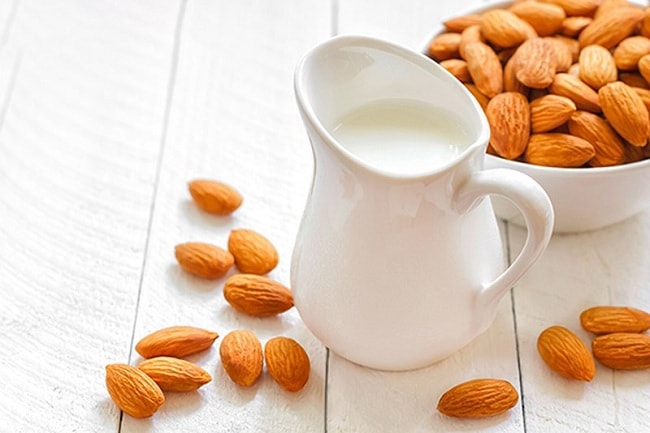
Day 4
- Meal 1: 1/2 cup oats, 1 cup blueberries, 1 teaspoon of flax, 1 teaspoon of cinnamon powder.
- Meal 2: 5 egg whites, 1 egg, 3 cups spinach, 1 onion, 1 orange.
- Meal 3: 1 orange, 1 apple, 50g almonds, 1 cup yogurt. 1 scoop of Whey protein
- Meal 4: 1 cup tuna meat, 1/2 cup black beans, 1 banana.
- Meal 5: 1 bell pepper, 200 pork, 1 cup brown rice, 1/2 cup mushrooms.
- Meal 6: 1 scoop of Whey Protein, 1 teaspoon of flaxseed.
Day 5:
- Meal 1: 1 apple, 1 cup of spinach, 100g chicken, 2 eggs.
- Meal 2: 1 cup of yogurt, 1 cup of grapes, 1 cup of cheese
- Meal 3: 1 banana, 1 scoop of whey, 1 cup of skim milk, 50g of walnuts.
- Meal 4: 2 slices of black bread, 1 handful of spinach, 100g chicken, 1/2 cup of carrots.
- Meal 5: 150g pork ribs, 1 sweet potato, 1 cup of asparagus, 1 cup of skim milk
- Meal 6: 1 cup of skim milk, 1 cup of pineapple (pineapple), 50g of almonds.
Day 6
- Meal 1: 1 egg, 5 egg whites, 2 slices of bacon, 1 orange
- Meal 2: 1 glass of Whey protein, 1 year of blueberries, 1 teaspoon of flaxseed.
- Meal 3: 3 cups of spinach, 2 slices of bacon, 1/2 cup of black beans, 1/2 cup of mushrooms, 1 cup of carrots, 100g of chicken.
- Meal 4: 1 apple, 1 teaspoon of peanut butter, 1 cup of skim milk, 1 teaspoon of Whey
- Meal 5: 2 slices of black bread, 100g of chicken, 1 cup of bell peppers.
- Meal 6: 1 cup of yogurt, 1 cup of grapes, 1 teaspoon of flaxseed.
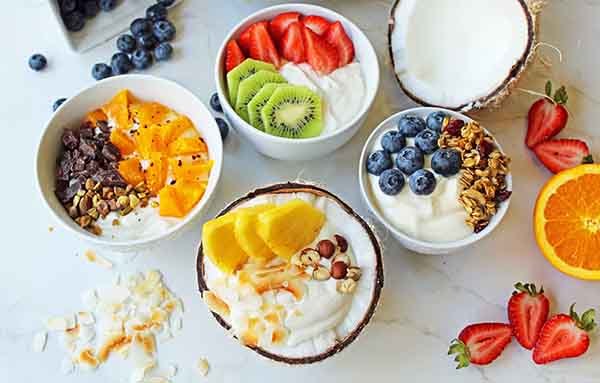
Day 7
- Meal 1: 1 cup of oats, 1 cup blueberries, 1 teaspoon of flaxseed, 50 grams of walnuts.
- Meal 2: 1 scoop of whey, 1 cup of yogurt, 1 teaspoon of flaxseed.
- Meal 3: 2 slices of whole-grain bread, 100g chicken, 1 orange, 1 cup of lettuce, 1 tomato, 50g almonds.
- Meal 4: 1 cup tuna meat, 1 egg, 1 cup quinoa, 1 orange, 1/2 cup green vegetables.
- Meal 5: 3 cups spinach, 100g chicken, 1/2 cup black beans, 1/2 cup mushrooms, 1 cup carrots.
- Meal 6: 6 egg whites, 1 slice of bacon, 1 apple (or pear).
Diet for bodybuilders gains weight.
Day 1
- Meal 1: 1.5 cups oats, 1 cup of Mass Gainer weight gain milk, 1 handful of dried fruit, 1 teaspoon of flax oil
- Meal 2: 1 glass of milk, favorite fruit, 1 cup of cheese.
- Meal 3: 2 cups of rice, 200g of chicken, 3 cups of spinach, 1 banana
- Meal 4: 1 scoop of Mass Gainer, 1 cup of Greek yogurt, 1 cup of blueberries, 1 teaspoon of honey.
- Meal 5: 300 salmon meat, 1 large sweet potato, 1 cup of green beans, 1 glass of low-fat milk.
- Meal 6: 1 cup of butter smoothie, 1/2 teaspoon of Mass Gainer
Day 2
- Meal 1: 1 cup of Mass Gainer milk, 1 cup of strawberries, and 1 slice of black bread.
- Meal 2: 1 tablespoon of peanut butter, 1 banana, 1 teaspoon honey, 2 cups skim milk.
- Meal 3: 4 slices of black bread, 200g of chicken, 1 cup of mushrooms, 1 cup of broccoli, 1 teaspoon of peanut butter.
- Meal 4: 1 cup of mass gainer milk.
- Meal 5: 300g chicken breast, 1 sweet potato, 1 cup spinach.
- Meal 6: 1 cup of Mass Gainer
Day 3:
- Meal 1: 2 eggs + 2 egg whites, 1/2 cup of green vegetables.
- Meal 2: 1 cup of mass gainer milk, 1 cup of brown rice, 1 apple
- Meal 3: 300 chicken breasts, 1 cup of broccoli, 1 cup of pumpkin soup, 2 cups of rice.
- Meal 4: 1 cup of Mass Gainer milk and an apple
- Meal 5: 200g pork ribs, 1 cup broccoli, 2 cups brown rice.
- Meal 6: 1 cup of Mass Gainer, 1 apple, 1 / s cup of brown rice.

Day 4
- Meal 1: 2 cups of oats, 1/2 teaspoon of Mass Gainer
- Meal 2: 1 banana, 1 teaspoon of peanut butter, 2 slices of black bread
- Meal 3: 2 cups of rice, 200g of salmon, 1 cup of green vegetables, 1 cup of avocado smoothie.
- Meal 4: 1 apple, 1 spoon of Mass Gainer
- Meal 5: 100g chicken breast, 1 cup of green vegetables, 1 cup of mushrooms, 1 cup of bell pepper, 1 cup of rice.
- Meal 6: 1 cup of Mass Gainer, 1 apple
Day 5:
- Meal 1: 1 bowl of pho, 1 cup of blueberries
- Meal 2: 1 glass of low-fat milk, 1 teaspoon of peanut butter, 1 banana.
- Meal 3: 2 cups brown rice, 200g chicken breast, 1 cup cherry tomatoes, 1 cup of carrots. 1 cup of green vegetables.
- Meal 4: 1 cup of Mass Gainer milk, 1 sweet potato.
- Meal 5: 200g beef mixed with vegetable salad, 1 cup of rice, 1 cup of soup
- Meal 6: 1 cup of mass gainer milk, 1 teaspoon of peanut butter.

Day 6
- Meal 1: 1 cup of Mass Gainer milk, 1 orange, 1/2 cup of oats.
- Meal 2: 1 glass of low-fat milk, 1 handful of walnuts, 1 teaspoon of olive oil.
- Meal 3: 100g chicken, 100g salmon meat, 1 cup spinach, 1 cup broccoli, 1 cup pumpkin soup.
- Meal 4: 2 slices of black bread, 1 tablespoon of peanut butter, 1 banana, 1 glass of mass gainer milk
- Meal 5: 1 cup of rice, 150g of chicken breast, 1 cup of mushrooms, 1 glass of low-fat milk, 1 apple
- Meal 6: 1 cup of Mass Gainer milk, 1 teaspoon of peanut butter.
Day 7
- Meal 1: 1 egg, 4 egg whites, 1 cup of oats
- Meal 2: 1 cup of Mass Gainer milk, 1 banana, 1 teaspoon of peanut butter.
- Meal 3: 200g of chicken, 2 cups of rice, 1 egg, 1 cup of green vegetables, 1 cup of bitter melon soup.
- Meal 4: 1 mass of milk mass gainer, 1 egg.
- Meal 5: 2 cups of rice, 1 cup of green vegetables, 200 salmon, 1 cup of skim milk.
- Meal 6: 1 cup of mass gainer milk, 1 small apple.
Diet for bodybuilders gains muscle.
Day 1
- Meal 1: 1 Multivitamin, 1 teaspoon Whey Protein, 1 cup oats
- Meal 2: 1 banana, 2 slices of black bread.
- Meal 3: 1 cup brown rice, 200g chicken breast, 1 cup broccoli, 1 cup asparagus.
- Meal 4: 1 scoop of Whey Protein, 1 teaspoon of BCAA, 1 teaspoon of Creatine, and a banana.
- Meal 5: 1 scoop of Whey Protein, 1 scoop of Creatine, and 1 teaspoon of BCAA
- Meal 6: 2 cups of rice, 1 cup of pumpkin soup, 100g of salmon. 1 cup of green beans
- Meal 7: 1/2 teaspoon Whey Protein + 1/2 teaspoon Casein
Day 2:
- Meal 1: 1 egg + 3 egg whites, oats, 1 banana.
- Meal 2: 1 glass of low-fat milk, 1 handful of blueberries, 1 glass of Whey protein milk.
- Meal 3: 200g salmon, 1 cup brown rice, 1 cup broccoli, 1 handful of almonds.
- Meal 4: 1 scoop of Whey protein, 1 scoop of BCAA, 1 banana
- Meal 5: 1 scoop of Whey protein, 1 scoop of BCAA, 2 slices of black bread, 1 teaspoon of peanut butter.
- Meal 6: 1 cup of rice, 1 cup of green vegetables, 100g of beef, 1 onion.
- Meal 7: 1 scoop of Whey protein, 1 glass of milk

Day 3
- Meal 1: 1 glass of milk, 1 tablespoon of peanut butter, 1 teaspoon of Whey protein, 1 multivitamin
- Meal 2: 1 cup of yogurt, an apple, little walnuts.
- Meal 3: 200g salmon, 1 cup of asparagus, 1 cup of rice, 1 cup of soup.
- Meal 4: 1 scoop of Whey protein, 1 scoop of BCAA, 1 banana
- Meal 5: 1 scoop of whey protein, 1 scoop of creatine, 1 scoop of BCAA, and 1 slice of whole-grain bread.
- Meal 6: 1 cup of rice, 200g of chicken + salad with vegetables.
- Meal 7: 1 scoop of WHey protein.
Day 4:
- Meal 1: 1 cup of oats, 5 egg whites, 1 tablespoon of peanut butter, 1 multivitamin hospital.
- Meal 2: 1 cup Greek yogurt, 1 handful of almonds
- Meal 3: 200g of pork, 1 cup of brown rice, 1 cup of soup, 1 cup of boiled vegetables.
- Meal 4: 1 scoop of Whey protein, 1 scoop of BCAA, 1 scoop of creatine, 1 banana, 1 handful of blueberries.
- Meal 5: 1 scoop of whey protein, 1 scoop of BCAA, and 1 scoop of creatine
- Meal 6: 1 cup of brown rice, 100g chicken, mixed egg salad, 1 cup of soup
- Meal 7: 1 glass of Whey Protein, 1 glass of milk
Day 5:
- Meal 1: 1 cup of low-fat milk, 1 teaspoon of Whey protein, 1 teaspoon of peanut butter.
- Meal 2: 1 cup of yogurt, 1 pinch of walnuts, 1 apple
- Meal 3: 150g chicken, 1 cup of asparagus, 1 cup of boiled vegetables, 1 cup of rice.
- Meal 4: 1 bar of a protein bar, 1 cup of oats, 1 potato.
- Meal 5: 1 scoop of Whey protein, 1 scoop of BCAA.
- Meal 6: 200g chicken, 1 salad, 1 cup of rice.
- Meal 7: 1 glass of Whey protein
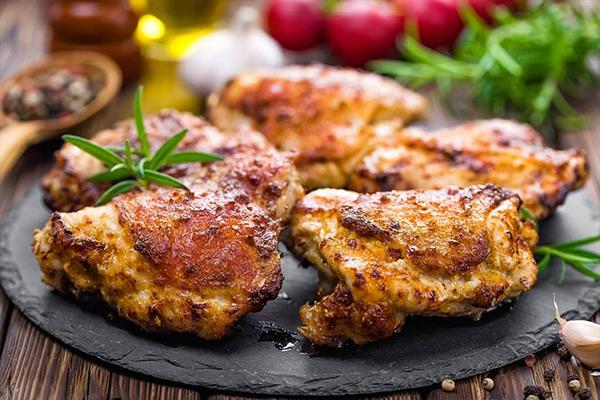
Day 6
- Meal 1: 1 glass of milk, 1 tablespoon of peanut butter, 1 teaspoon of Whey protein, 1 multivitamin
- Meal 2: 1 banana, 2 slices of black bread, 1 teaspoon of peanut butter.
- Meal 3: 150g of tuna, 1 cup of salad, 1 cup of mushrooms, 1 cup of carrots.
- Meal 4: 1 scoop of Whey protein, 1 scoop of BCAA, 1 sweet potato
- Meal 5: 1 scoop of Whey protein, 2 slices of black bread.
- Meal 6: 100g pork, 1 egg, 1 cup of rice, 1 cup of vegetables.
- Meal 7: 1/2 teaspoon Whey Protein, 1/2 Spoon Casein
Day 7
- Meal 1: 1 cup of oats, 1 handful of walnuts, 1 multivitamin
- Meal 2: 1 cup of yogurt, 1 teaspoon of chia seeds.
- Meal 3: 200g of chicken, 1 cup of rice, 1 cup of vegetables, 1 cup of soup.
- Meal 4: 1 bar of a protein bar, 1 cup of yogurt, 1 cup of strawberries.
- Meal 5: 1 cup of rice, 100g chicken, 1 cup of vegetables
- Meal 6: 1 glass of Whey Protein Milk
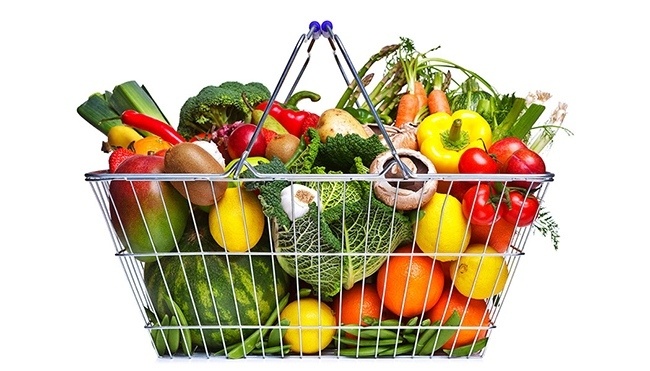
Bonus The 6 Fundamentals of Muscle Growth Video
Above is the whole diet guide for bodybuilders to lose weight, gain weight, and gain muscle. If you have any other questions, please comment or send us a message for the fastest support.
View more:
- List Of More 60 Cardio Exercises – With Photo Tutorials and Videos to Help You Practice Anywhere
- Does Maltodextrin Benefit Bodybuilding? You Should Know
- Benefits Of Running in The Morning – You won’t want to Waste This Time In Your Bed Anymore
Hopefully, the information above has helped you gain some more knowledge about the “basic principles of bodybuilding” and bring some small value to you. Please share this article if you feel it is useful. Thanks!
